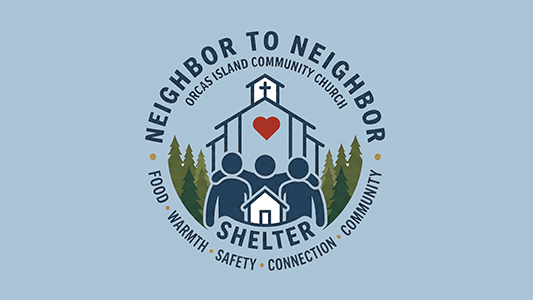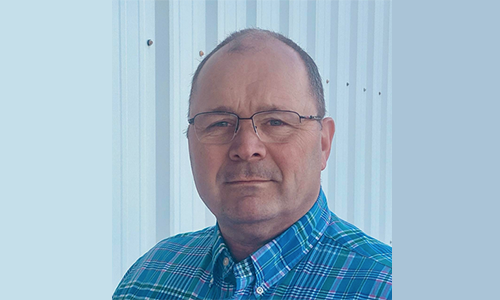Part 2 in a series of reports on the August 4, 2010 Town Hall meeting with Orcas Island County Council Members and County Staff, Administrator Pete Rose and Auditor Milene Henley.
[intlink id=”9544″ type=”post”]After a discussion of the County Budget[/intlink], the Town Hall meeting then turned to consider the county’s troubled solid waste program, its “solvency and lack thereof,” said Orcas West Council Member Richard Fralick
“The matter continues to be perplexing and difficult,” Fralick said, before going into a recent history of the matter, including the identification of a new site in April 2009, negotiations for a lease/purchase agreement with the Town of Friday Harbor, the subsequent withdrawal, on April 1, 2010 of the town from the agreement, to the close of the San Juan Island transfer station on June 30 and its conversion into a “drop box facility” as of July 1, 2010.
As a drop box facility, waste is dropped into a container which is then hauled off the site – now to Orcas Island.
“We have to come up with a scenario that works and we don’t know what that is,” Fralick said. “A number of things get in our way.” He described the current business plan that relies on a garbage volume fee for operations and capital and a policy that encourages the reduction of that garbage volume.
Council Member Knapp added, “Solid waste is deep in the red… it’s a branch of public works, whose job is primarily doing roads.”
“I’d hope the county [considers]solid waste as a separate department.” Knapp stated the deficit for the solid waste program as $1.2+ million, with $334,000 in operations costs and $879,000 in capital costs.
Fralick said that business model is “compounded by the economic downturn; we’re down to 2001-2003 levels” of trash collection and fees.
Knapp said that the county has the highest tipping fees in the state: “Because we’re islands, we have to support three separate sites. Whatcom and Skagit just have one site per county.”
Rose spoke of the problems with the environmental process, the legality of funding options and the recent withdrawal of the Friday Harbor site. “We have fewer options, would be the best way to put it,” Rose said
Questionnaires on the issue have been mailed to county residents, and the public was encouraged to fill them out and return them as part of random, statistically valid survey Janet Alderton mentioned that the questionnaires are on line as well. The Council will hear the results of these questionnaires on August 30.
Several audience members spoke to the long history of the county’s solid waste disposal problem and it was suggested that privatization be considered. Fralick said that privatization is a recurring suggestion, but “One presentation made [to the Council] was not encouraging as a viable business prospect.
“This problem goes back a long, long ways: it’s very frustrating to realize how long it does go back. This council is trying desperately to put a solution around it and moving on. It’s a priority: we’re spending more time than I’d like to admit,” Fralick said.
Martha Farish questioned the status of legal appeals filed in the matter. Rose said that he didn’t expect the two appeals filed about the Friday Harbor site, “to go anywhere; the county took the legal option to combine appeals with legal permit, which is in limbo now.”
“The other appeal refers to the recently-passed upland essential public facilities ordinance, which is where we got derailed in 2002… I hope we get something that passes muster with the hearings board.”
Leonard Wood asked if the Council will look at the “cost as well as the value of recyclables.”
Fralick responded that the Council had directed an ordinance be drafted to look at recyclables with a view towards recovering recyclable costs, and said a Council discussion on August 24 will consider the matter.
The recyclables amount to about 1/3 of the solid waste, Fralick said. “We are absorbing the cost. It is a problem that we have, charging for recyclables is one way of looking at concerns. On the flip side, we’re trying to encourage [the policy of] reduce, reuse and recycle.”
Fralick said the county was “looking at instituting a gate free for recycling,” and that a $3 fee had been discussed.
George Post laid the basic problem of solid waste disposal to the fact that of the county “never embracing the concept of waste reduction; a fundamental flaw that’s poisoned the system from the get-go.”
After saying he’d given up on the siting of the waste disposal on San Juan Island, Post said, “What I’ve come down to is the Exchange and Orcas Island — I have a petition that asks the County to accommodate the citizens and values of each island in a way that allows them to at least reducing their waste if they want to.
“Reducing the waste stream would reduce the transportation cost. Keep yard waste and make it into compost — why are we shipping our soil, our vegetable matter to eastern Washington?” Post asked.
He suggested each island would have their own district to raise money. “Orcas doesn’t need any — we as an island will support our own waste system,” he concluded, before presenting his petition to the Council members at the August 4 meeting.
After Bob Connell asked at what point raising fees would lead to illegal dumping, former County Commissioner John Evans described the solid waste disposal problem as “the gift that keeps on giving.”
Evans said that he supported Post’s efforts. “Reduce, reuse, and recycle are the 3 Rs — what most of us understand to be the basis of our solid waste program.” He said that the San Juan Builders [Association] “have figured it’s about 2/3 cheaper to haul to the mainland and use their services rather than county services.
“In all this other mix you’ve got going on, you’ve got competition,” Evans said and then described his frustration at trying to get information about the revenue and expenses for solid waste. “Somehow or other, it’s a secret as to what the actual costs are to this cockamamie system.
“The basic mechanics either not being done or not being tracked,” Evans said, and described “passive resistance from public works. You have a management problem on top of everything else.”
“Not every community has this issue; most have a solid waste system that generates positive cash flow that generates revenue for parks and other beneficial programs. I think you need to go out for an RFP; there’s other people that want to take over the program; because public works is not capable of running this program.”
Bob Eagan referred to a Snohomish county case regarding transporting waste to another county, and pointed out that “Ccontractors are not allowed to haul trash to mainland; “nor is San Juan Sanitation.”
Fralick said that the council was considering local districts and privatization and spoke to the complexity of the problem: “The [waste] volume does not support a capital program of 3 drop boxes on 3 islands. We have to come up with a solution that works for community as it is.”
**If you are reading theOrcasonian for free, thank your fellow islanders. If you would like to support theOrcasonian CLICK HERE to set your modestly-priced, voluntary subscription. Otherwise, no worries; we’re happy to share with you.**








First, I think most island residents would be surprised as to how many locals refuse to recycle. I spoke recently to a waste truck driver who stated “it’s unbelievable the amount of aluminum cans, beer bottles and other assorted recyclable products that are simply tossed into their garbage cans without thought of recycling!” If volunteering does not work, then perhaps leveling a fee/fine on those that are not thinking “green” and let them bear the cost of irresponsibility in dumping their waste for the rest of us to take care of. A few years ago, I started recycling all kitchen refuse that was vegetable matter and putting it into a 50 gallon plastic garbage can with holes drilled into the bottom. After six to nine months it became black, fertile dirt, excellent for planters and potted vegetable containers.
No fertilizer needed! I dug a trench in the woods behind my property and put animal waste (chicken bones and dairy products) into that and it is deep enough to keep the coons and other vermin uninterested. I have cut my visits to the waste disposal site to about a fifth of previous visits. Does it take work?…sure, about as much as washing your car once a month! Four years ago there was a ban on smoking in bars and restaurants, and there was resistance to that, but eventually everyone got used to it. I think we have to do the same with recycling…do it or get fined! (Unfortunately, this could only apply to residential pick-ups, because there would still be those who simply drop their recyclables into the garbage dumpsters at the waste disposal site.)
Five years ago the city of Seattle instituted fines for putting recyclable materials in with the garbage. Why can’t we?
See
https://www.cityofseattle.net/UTIL/About_SPU/Recycling_System/History_&_Overview/Ban_on_Recyclables_in_Garbage/index.asp